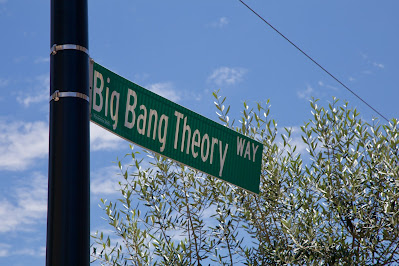The Big Bang vs. the Steady State: Comparing
the Two Leading Theories of the Universe's Origins:
The Big Bang theory and the Steady State theory. Discuss the
key differences between the two theories and provide evidence for each. You can
also discuss the current status of the debate and which theory is more widely
accepted by the scientific community.
Sources:
"The Big Bang Theory" (NASA) - https://www.nasa.gov/audience/forstudents/k-4/stories/nasa-knows/what-is-the-big-bang-theory-k4.html
"Steady State Theory" (Encyclopedia Britannica) - https://www.britannica.com/topic/steady-state-theory
Explain the assumptions and predictions of each theory, and
compare them with observational data such as the cosmic microwave background
radiation and the expansion of the universe. You can also discuss the role of
dark matter and dark energy in these models and how they have influenced our
understanding of the universe.
Sources:
"The Big Bang Model" (University of Illinois at
Urbana-Champaign) - https://van.physics.illinois.edu/qa/listing.php?id=2467
"Steady State Theory" (University of Oxford) - https://www2.physics.ox.ac.uk/contacts/people/will/cosmology/ss.html
Introduction to the big bang and steady state theories:
- Evidence supporting the big bang theory (e.g. cosmic microwave background radiation, redshift of distant galaxies).
- Evidence against the steady state theory (e.g. observed abundance of light elements, lack of predicted "new" matter being formed).
- Conclusion on the current status of the two theories and the overwhelming support for the big bang model.
Source: https://www.universetoday.com/36302/big-bang-theory/
"The Steady State Theory: An Alternative to the Big Bang, but Does it Hold Up to Scientific Scrutiny?"
- Introduction to the steady state theory and its key propositions (e.g. continuous creation of matter, lack of a singular starting point for the universe).
- Criticisms of the steady state theory (e.g. inability to explain cosmic microwave background radiation, lack of observed "new" matter being formed).
- Comparison to the big bang theory and the evidence supporting it.
- Conclusion on the steady state theory's place in modern cosmology.
Source: https://www.space.com/17816-steady-state-theory.html
"The Big Bang vs. the Steady State: A Brief History of the Debate Over the Universe's Origins"
- Overview of the history of cosmological theories, including the ancient Greek idea of an eternal universe and the development of the big bang and steady state theories in the 20th century.
- Key proponents and supporters of each theory (e.g. Fred Hoyle and Thomas Gold for the steady state theory, Georges Lemaître and Edwin Hubble for the big bang theory).
- Major pieces of evidence that helped shape the current understanding of the universe's origins (e.g. discovery of cosmic microwave background radiation, observation of redshift in distant galaxies).
- Conclusion on the current status of the debate and the acceptance of the big bang theory as the most accurate explanation for the origins and evolution of the universe.
Source: https://www.livescience.com/32791-big-bang-theory-vs-steady-state-theory.html






0 Comments
Please don't enter any spam link in the comment box.